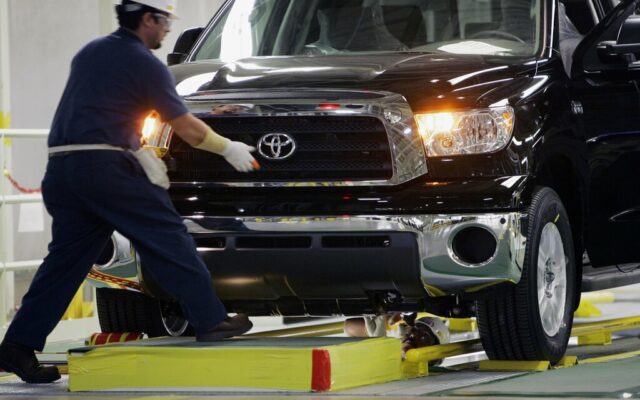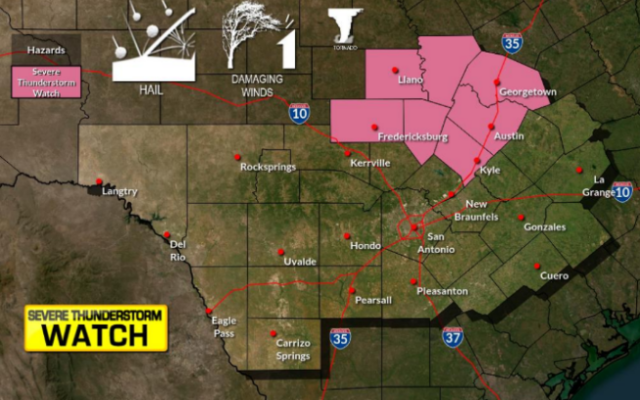Toyota plant in San Antonio spared in global production cuts

SAN ANTONIO (KTSA News) — The automotive industry is one of many industries feeling the effects of a worldwide shortage of computer chips in conjunction with issues related to the global coronavirus pandemic.
Toyota is the latest automaker to announce a reduction in overall production that will be felt across all vehicle assembly facilities in the country — except for the San Antonio plant.
The local facility is home to the assembly line responsible for building the 2022 model of the Toyota Tundra. The company also announced in January that production on the Toyota Tacoma will move to Mexico and the local plant will begin production on the Toyota Sequoia starting next year.
“In order to meet our production timeline and schedule for the new Tundra, we have to finish up current model production by a certain timeline,” Sparks said to the San Antonio Express-News. “If we’re delayed because of chip shortages, we can’t meet those milestones. So that’s the reason we’re prioritizing chips [for the San Antonio plant].”
Global production for Toyota will be cut by at least 40% and in North America, the automaker planned a reduction of between 60,000 to 90,000 vehicles for August with an additional 80,000 vehicles cut in September. Sparks noted the situation “remains very fluid” and the company does not expect employment to be impacted by the shortage.
The computer chips, also known as semiconductors, are used in a wide range of products from smartphones to the famously hard-to-find PlayStation 5 and Xbox Series X consoles all the way to vehicles. Bloomberg reported last Friday that Japanese chipmaker Rohm Co., whose customers include Honda, Ford and Toyota, said chip shortages can be expected until at least next year.
The issues are a result of a production line that is busting at the seams and a shortage of key materials, according to Rohms CEO Isao Matsumoto.
Matsumoto told Bloomberg that despite production running on all cylinders, there is a backlog of orders that is overwhelming. The company has planned to continue making multi-million investments, but progress has been hampered over delayed delivery of production machinery.
“Offers to hike prices won’t do a job at all anymore because our suppliers just don’t have a unit of stock at hand. Even for the ones we reserved, the pace of arrival at our site isn’t living up to our expectations,” Matsumoto said.
You Might Also Like



